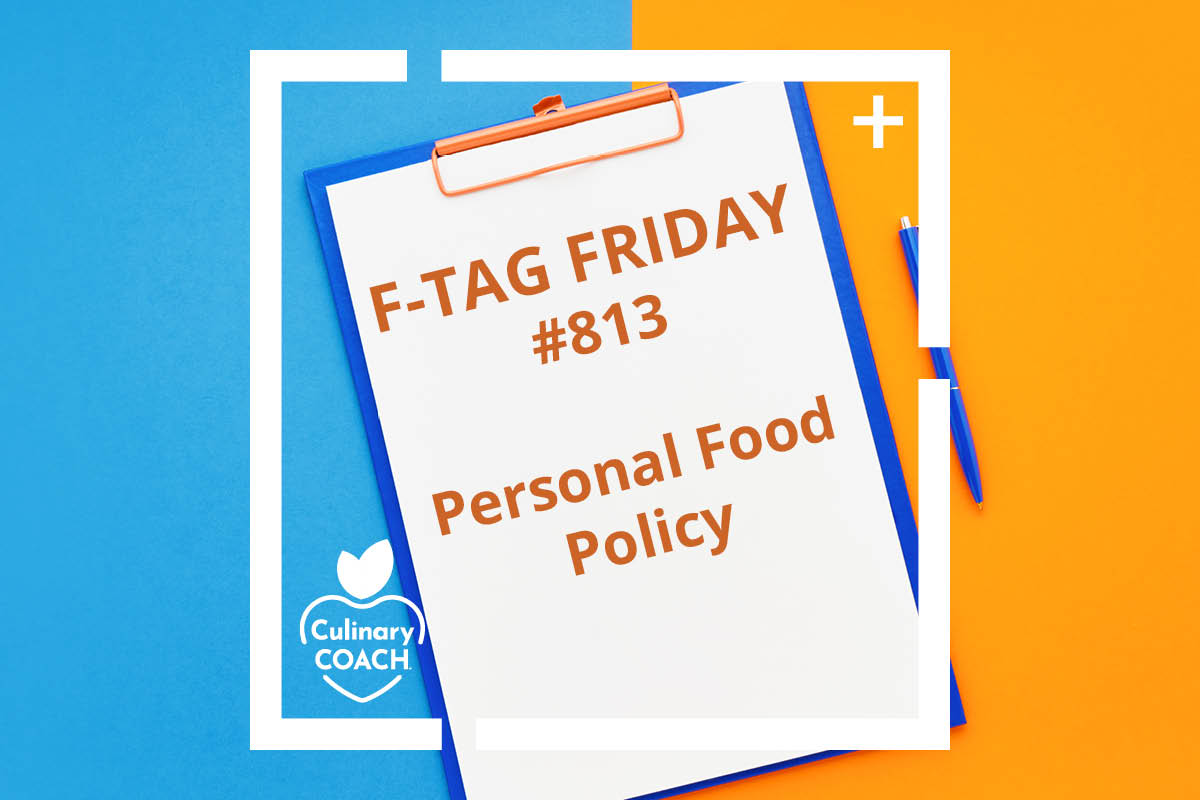
25 Mar F-Tag 813 Blog
Food and Nutrition Services F-813: Personal Food Policy
How to manage food brought in by visitors
With communities opening up for visitation again after the lengthy restrictions mandated due to Covid-19, a renewed focus must be placed on food brought in by visitors. Again, we must think of storing, reheating and discarding personal food items in different containers.
F-813 requires that a community have a policy in place for use and storage of foods that are brought in to residents by their families and other visitors to ensure safe and sanitary storage, handling and consumption of these food items. Even before Covid-19, it was challenging to ensure that a system for personal food items was working, so now is a good time to remind everyone of what needs to be in place for compliance.
Community Responsibilities
Communities are required to have a personal food policy in place. The policy needs to cover:
- Staff responsibility and procedures for assisting residents with accessing food and consuming it if the resident is not able to do so independently.
- Who is in charge of reheating outside foods?
- Does that staff know the appropriate temperature at which food must be reheated to?
- Are thermometers available for staff?
- Is information readily available for reference when food needs reheating?
- How food brought from outside the facility will be stored in a manner that keeps them separate or allows them to be easily distinguished from facility-procured foods. If the decision is to utilize multiple refrigerators, the policy needs to reflect how items stored throughout the facility will be discarded and who is responsible for doing so. Procedures should clearly define who is responsible for checking these food storage areas and making sure expired food items are discarded.
- How visitors will be educated on safe food handling processes, including preparation, hand hygiene and holding temperatures for foods being brought in for residents or even what the facility protocol is for visitors who are reheating or preparing foods with residents. Who is the person responsible for ensuring this education is completed? There will always be a family member who brings in a home prepared food item that the “resident loves” and informs the staff that it can keep for a week in the refrigerator.
Family education is so important!
During Survey
Surveyors can check with residents and families/visitors to identify if they were provided with the facility’s personal food policy, and if safe food handling practices were explained to them.
Surveyors can also interview the facility’s staff to see if they are aware of the facility’s policy. And if they are involved in assisting with personal food items, they should understand safe food handling practices. For instance, if CNAs are responsible for storing and reheating items rather than members of the dietary staff, are they aware of the facility’s procedures for doing so? It is important to ensure all involved staff are competent in safe food handling to minimize the potential for a negative outcome.
Education and a monitoring system should help you avoid an easily cited deficiency. While you are making rounds, peek into the refrigerators used for resident food storage and see how many items are unlabeled, undated, or expired, or if staff use these refrigerators for storage of their own lunches. All are deficiencies in the making.
